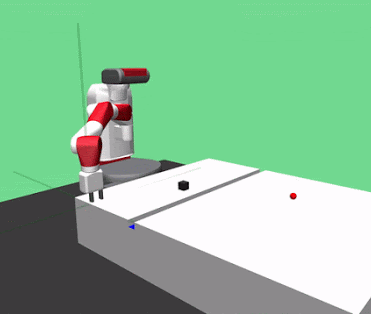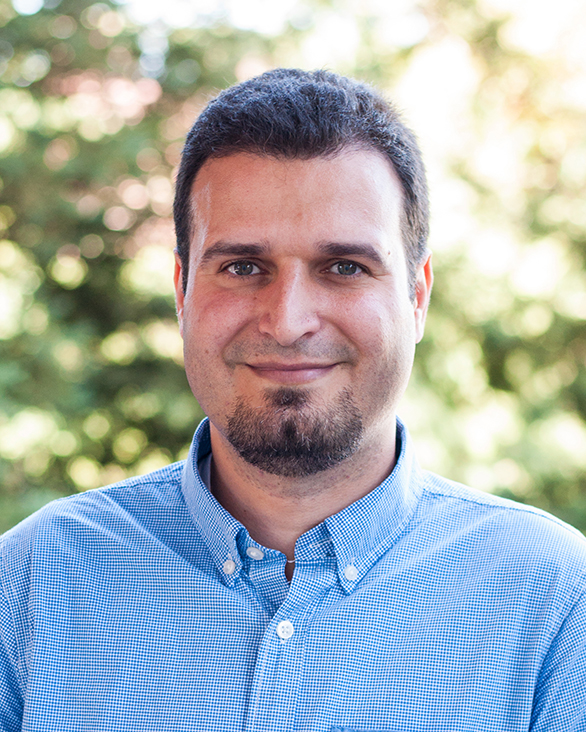Where mechanics meets artificial intelligence
Jul 16, 2019

Source: Mechanical and AI Lab
With deep reinforcement learning, this robotic arm in Amir Barati Farimani's lab attempts different techniques to get the block over the trench. The research team aims to give robots intelligence and more human-like behavior, such as creativity and persistence.
As a researcher at Stanford University, Amir Barati Farimani worked in burgeoning fields of machine learning application like computer vision, image processing, and natural language processing—all primarily computer science domains. From this work, a question formed in his mind.
“How can we integrate machine learning into other areas of engineering, like heat transfer, fluid mechanics, or bioengineering?” he thought. With a background in mechanical engineering, he realized the value that machine learning could bring to his research.
Since reaching that epiphany, Barati Farimani has started to use state of the art data science techniques, deep learning, and machine learning algorithms to investigate a range of research applications: desalinating water with energy-efficient materials, adapting vaccine antibodies to keep up with rapid virus mutation, and inspecting infrastructure with autonomous, unmanned aerial vehicles.
What drew him to Carnegie Mellon University? The institution’s history of innovation and multidisciplinary collaboration.

Source: Amir Barati Farimani
Assistant Professor of Mechanical Engineering Amir Barati Farimani joined the Department of Mechanical Engineering in 2018.
“If you look at the faculty that we have in CMU’s mechanical engineering department, all of them are doing non-traditional mechanical engineering,” he said. “This type of vision, combined with also having a very strong machine learning department, encouraged me to join CMU. There are a lot of opportunities to undertake exciting projects.”
He started the Mechanical and Artificial Intelligence Laboratory (MAIL), a multidisciplinary group bringing together researchers with different backgrounds and interests, including mechanical engineering, computer science, bio-engineering, physics, materials science, and chemical engineering.
Machine learning is already changing the engineering landscape, providing data-driven insights to understand complex phenomena and more accurate results and analysis, in just a fraction of the time it takes compared to traditional methods. However, leveraging this technology to its true potential will not only require forward-thinking engineers like Barati Farimani, but changes in how they’re trained. Leading universities like Carnegie Mellon are already offering graduate engineering courses in AI and machine learning.
“If you look at current mechanical engineering graduate students, most go to computer science to take courses for machine learning, artificial intelligence, big data, all kinds of data science courses,” says Barati Farimani. “I think my lab is going to bring data science into mechanical engineering—not the other way around.
Media contact:
Lisa Kulick, lkulick@andrew.cmu.edu